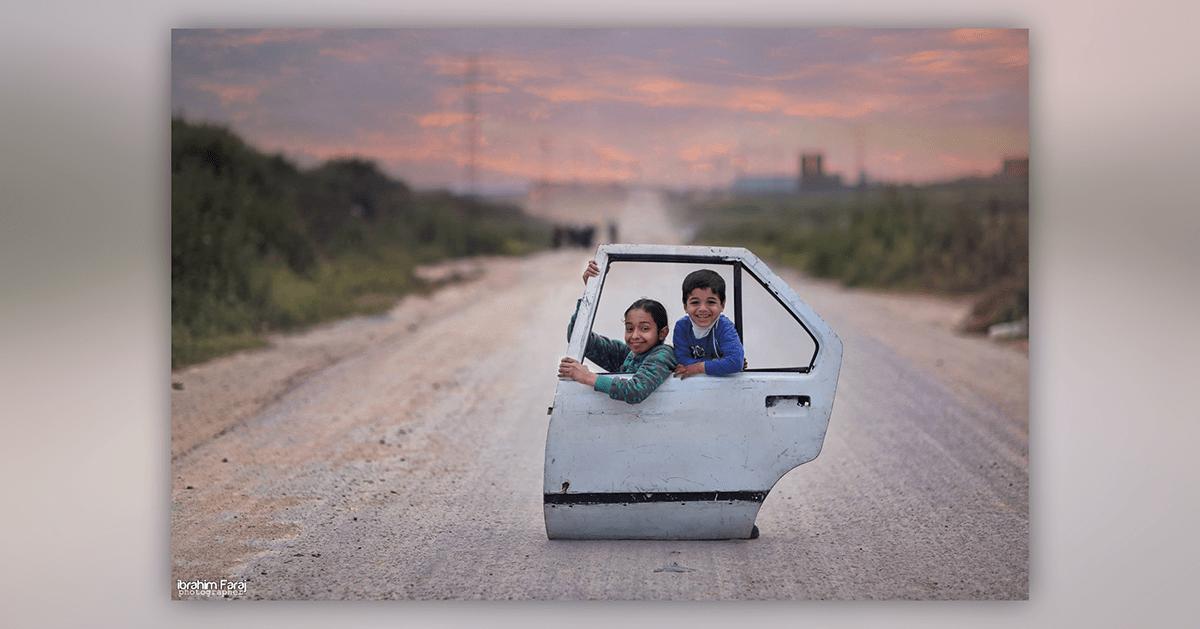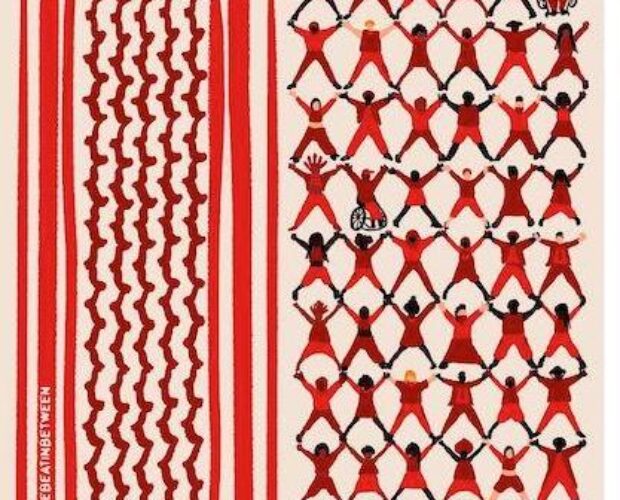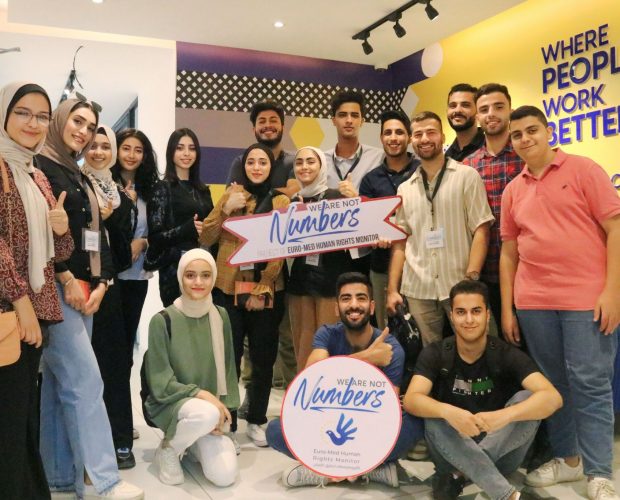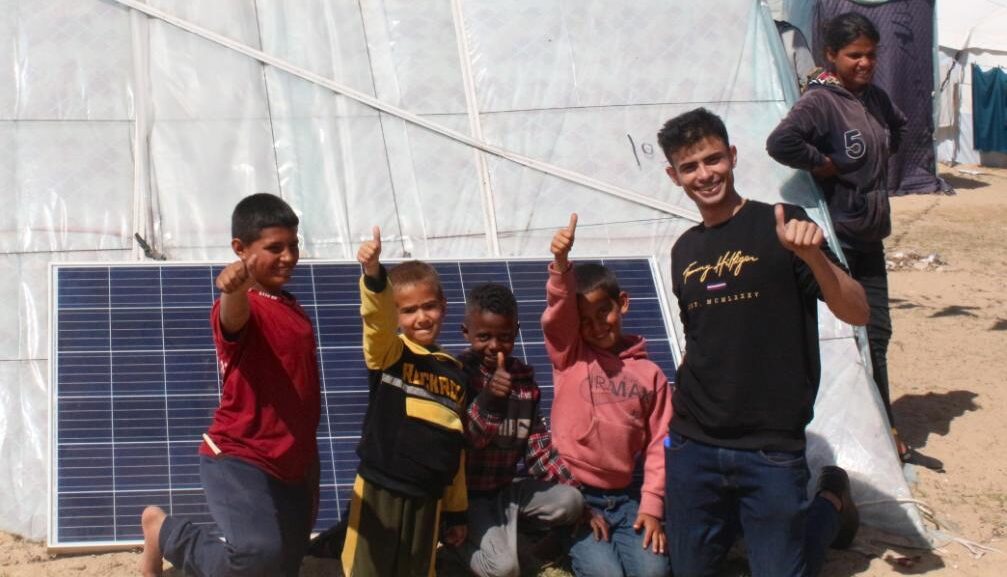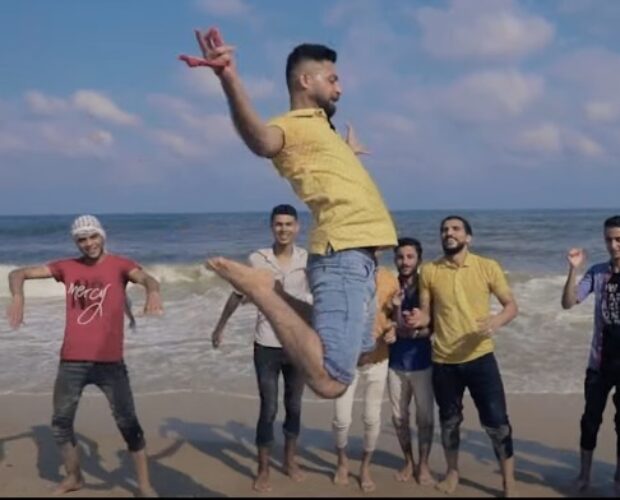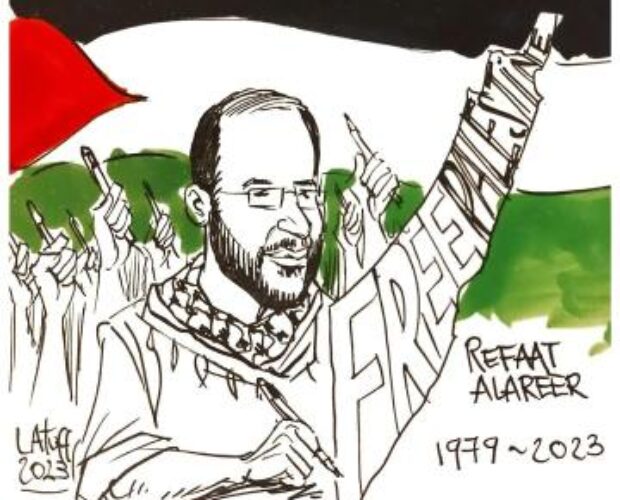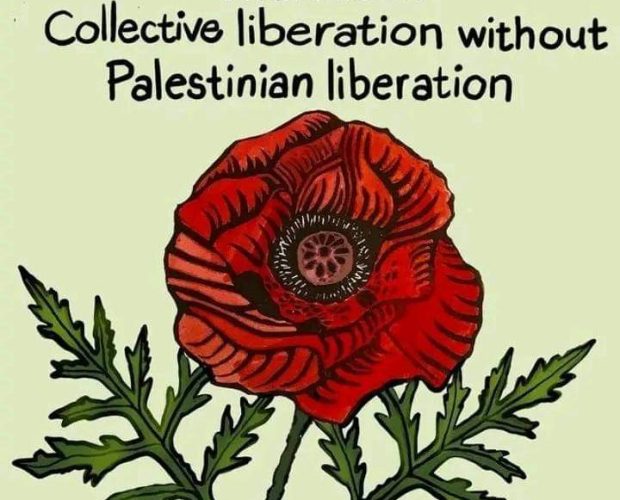English translation of the original French article in Le Monde
Piotr Smolar (Correspondant, Jerusalem) November 9, 2017

To inform the world of the plight of the Palestinian population, young Gazans are taking up the challenge of writing their stories in the language of Shakespeare. This exercise also has therapeutic virtues, which makes it possible to find distraction from the harsh everyday reality.
He was already imagining himself in front of the White House, smiling, taking a selfie to immortalize his first trip abroad. In April, Wesam Al-Naouq believed he would actually get permission to leave the Gaza Strip: The young man had been selected for a program for future leaders at the prestigious Georgetown University in Washington, DC.
For three months, he waited for an Israeli permit to visit the U.S. consulate in Jerusalem to obtain a visa. But the permit never arrived, without explanation. "They didn’t kill me, but they killed my dream," Al-Naouq wrote on Facebook.
Being young in Gaza is like serving a lifetime sentence. The staggering rate of unemployment (60 percent among youth), the weight of religious conservatism, the 10 years of Hamas' iron fist around the Palestinian territory, a decade marked by three Israeli wars and a blockade. Way too often, university diplomas only serve to decorate the walls.
‘Release the pain’
But the greatest pain is confinement itself—the feeling that outside this peninsula of land just 40 kilometers long, yet packed with 2 million people, the world pulsates, changes and offers ephemeral possibilities. Yet they can only experience any of that through the screen of a smartphone. In Gaza, Facebook is both an addiction and a slow poison.
What to do with this pain? Everyone is looking for a distraction. Some Gazans have found it in writing. A fourth-year student at Al-Azhar University (Gaza City), Wesam joined a group of English-speaking Palestinians determined to translate their frustration, anger and, sometimes, hopes into black and white.
Wesam is a tall fellow of nearly 2 meters, with an elegantly trimmed beard and eyes of rare benevolence, as if he wanted to disarm the world. He speaks English in long sentences, a way to show the richness of his vocabulary. "I write in Arabic for myself, but God has given me the ability to write in English as well, so it's my duty to do it," he says. “I belong to this country, to this people, who think the world is ignoring them. I have to make their voice heard outside.” For him, writing also has a therapeutic virtue. "I cannot do anything else to ease the pain. "
Foreign mentors
At 21, Wesam is one of the pillars of the We Are Not Numbers project, which gave birth to a website in 2015. Its founder is an American journalist, Pam Bailey.
An activist for the Palestinian cause and a frequent visitor to Gaza, she made contacts over the years and wanted to develop a long-term project. Her idea: to offer a mentor to every apprentice writer, a man or a woman ready to guide him, to edit his texts, to be his privileged interlocutor at a distance. Journalists, bloggers or writers, these foreign mentors, half of whom are Jewish, are not famous personalities. But they can spend time monitoring their correspondent.
In the summer of 2016, Pam Bailey was arrested at the Ben-Gurion Airport in Tel Aviv and deported, slapped with a 10-year entry ban. The books she was carrying for her group disappeared. From a distance, the journalist continued her project.

The appetite of the young writers involved is enormous. At first, they were reluctant to benefit from the advice of Jewish mentors. Today, says Pam Bailey, this is no longer an issue. But the Jews remain for them a fantasized abstraction and the Israelis, an unknown enemy. In 2012, Wesam won a writing contest that allowed him to discover Jerusalem for two days. "It was the best two days of my life. I cried when I saw the Al-Aqsa Mosque. My father, 74, has never seen it."
What these young people have lost, in 10 years of blockade and confinement, can never be regained. In one of his essays, Wesam refers to the "undead" of Gaza, "those who walk without souls and have lost hope."
Even the current reconciliation process between Hamas and Fatah leaves him skeptical. The habit of disappointment, no doubt. "I do not believe in those factions," he says. “It is difficult for them to leave behind everything that has happened in 10 years. They brought us misery and sadness.” And yet: With the handover of authority over the Palestinian side of the border crossings to the more internationally accepted Palestinian Authority, which occurred on November 1, the crazy hope of Cairo lifting of the blockade becomes more real. The opening of the gates to Egypt would provide an exciting subject for the apprentice writers of Gaza.
Small stories and the big one
To date, nearly 170 youths have participated in the project, 70 percent of whom are girls. Some are Palestinians living in Lebanon or the West Bank, but they are mostly in Gaza. Ahmed Al-Naouq, Wessam's cousin, is the local manager. Its headquarters are located in the premises of a social reintegration NGO, which houses the group for its meetings. It’s impossible to hold those meetings in a private home; in Gaza, the rules of socialization for young women are strict.

Ahmed studies English literature, but his goal has always been to become a journalist. Some of his writings are published on news sites. "In Arabic, we tend to exaggerate, to use too flowery language," he says. “I had to learn to write to be understood by a Western reader. I felt much better, the first time I was published. It allows you to develop a legacy. Something of you will remain after death. "
Imagine saying that at 23! One of Ahmed's brothers was killed in the last war in 2014. He was a member of Al-Qassam Brigades, the military wing of Hamas. Haunted by this loss, Ahmed devoted three stories to him. Pam Bailey convinced him to write the first piece, to free himself from this mourning. "My absolute dream is to live somewhere else," says the young man. “Even in Sudan! I would like to get a scholarship to study journalism in the UK. Living here is like a life sentence. "
One day, a Canadian correspondent told Ahmed: "Ninety percent of people [in my country] think you are terrorists living in ruins.” That could be a slogan that in itself justifies the creation of We Are Not Numbers. Supported when it first started by the NGO Euro-Mediterranean Human Rights Monitor, this project aims to overcome clichés about Palestinians.
Much of the training provided concerns the weaving of a story, and not the literal practice of English, because a moderate level of proficiency is required to enter. All of the members have read the novel “Mornings in Jenin” (Buchet Chastel, 2008), a family taleby Susan Abulhawa, which showed them how powerful telling small stories is in helping to tell the big story. "Outside the war, many have never considered other aspects of their lives to be interesting or important," says Bailey. “So we do sessions to explain how the most ordinary moments can become stories. One of the big challenges is to teach them to show, not to tell.” The group's website offers a fascinating sample of these stories, giving flesh to misfortune and showing all of the complexity of these young Palestinians, even if it is difficult for them to leave the framework of victimology.
Exploring their own taboos
One day, during a writing workshop, the group was asked to write a story in one line. Here is a sample.
“For sale: Gazan passport, never used. "
"They killed her; something has changed: the numbers. "
"Let's study. The electricity stops. "
"She decided to rot in bed. "

The American activist who founded the project would like to go further, to push them to explore their own taboos, such as the issue of depression or marriage among young girls.
A graduate of Al-Azhar University in 2011, Karama Fadel comes from a broken family. Her father died when she was 5 years old. A brother has been living in Morocco for a long time. Through Skype, he tells her of his delightfully banal life. Her sister was able to reach Spain, where she applied for asylum. Karama works as an Arabic teacher for foreigners. A month ago, a decent young man asked for her hand. She did not refuse, but did not accept either. "My ambition is for now stronger than my desire to marry," she says. “Our society is very conservative. All my married friends do not do anything, they say they forgot the English we learned together. "
Learning through YouTube
Karama recently won the third prize in a blogger contest. She received a trophy and $200. But money is nothing compared to the feeling of pride. She had already experienced it with similar intensity when writing her first story for We Are Not Numbers. "I told the story of my aunt, the first and only woman bus driver in Gaza. She is my inspiration for courage. Aged 63, this aunt has never married. She wears jeans, runs a daycare and wants to embody the fragile possibility of emancipation for women in Gaza.”
Karama – "dignity" in Arabic – also has written about child labor and the powerlessness of the United Nations. It took her some time to get used to English. Her language learning was done primarily through YouTube videos. "At university, I wrote academically," she recalls. My mentors told me: "Think in English, write directly." Today, she admits to being very excited about the organization's new project: setting up a one-year journalism training.
Pam Bailey hopes she will eventually be able to transform some young people into real professionals, paid for as such. But she is sorely lacking funds. Especially since the group has also started to produce videos, which are expensive to produce. In one of these videos, we see a student, Yara Jouda, then we hear her voice. "I'm a girl who has no dreams, and maybe no future," she says, dropping a red rose on the floor. Yara Jouda then walks away in the middle of ruins.


